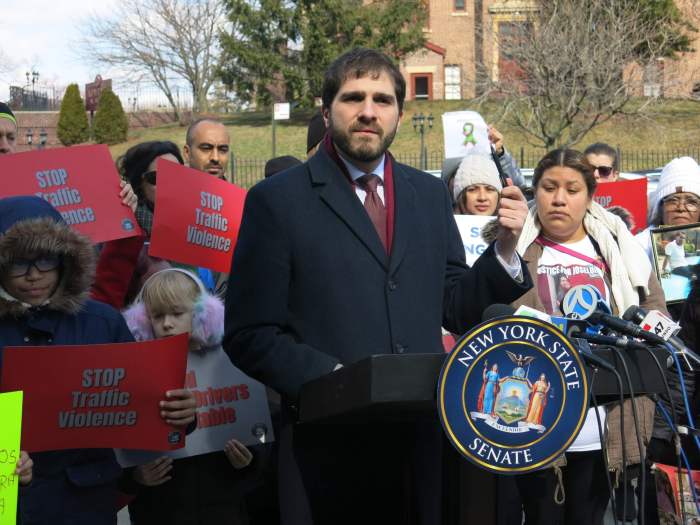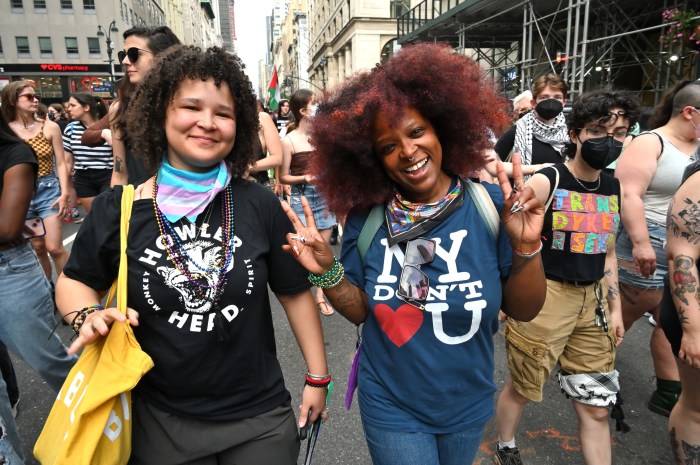The city’s Department of Transportation plans to slim down the dangerous McGuinness Boulevard by removing vehicle traffic lanes and installing new protected bike lanes on each side of the roadway after years of advocacy by locals.
The four-lane roadway is infamously dangerous for pedestrians, drivers, and cyclists alike, and calls for a redesign reached new heights after school teacher Matthew Jensen was killed in a hit-and-run in 2021.
DOT’s final proposal — developed after months of development and meetings with the local community — aims to slow vehicles and protect pedestrians and bikers by cutting one vehicle traffic lane in each direction, adding parking-protected bike lanes along both curbs, and shortening crosswalks to shorten pedestrian crossing distances, department representatives announced at a May 4 meeting.
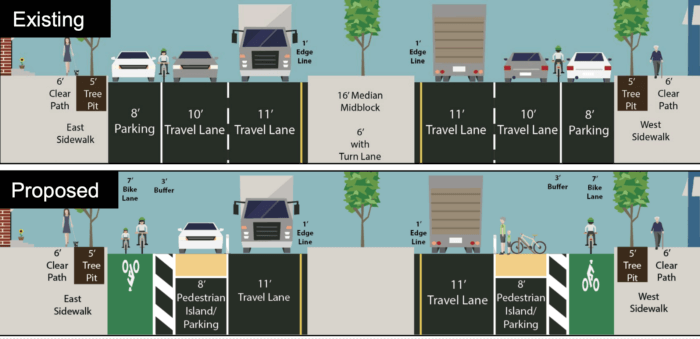
The agency also plans to install neighborhood loading zones for private and business use on each block and remove about two parking spaces per block to improve sight lines at street corners.
Altogether, the changes will result in a narrower roadway with a greater focus on pedestrians and cyclists. Thinner lanes force motorists to drive and turn more slowly, hopefully reducing injuries. According to DOT data, of 31 vehicle-pedestrian crashes on McGuinness Boulevard between 2016 and 2020, 19 occurred while the pedestrian was crossing with the signal, mostly while vehicles were turning left.
Pending community feedback, DOT plans to finalize their design and start work this summer.
“This is the power of our community coming together to demand a change,” said the Make McGuinness Safe Coalition in an Instagram post celebrating the release of the plan. “McGuinness has divided our neighborhood for nearly 70 years. It has hurt us, it has killed us, and every one of us has a story about how it has made our lives worse.”
Special attention will be paid to the busy, difficult to traverse intersections at Freeman Street, where McGuinness Boulevard meets the Pulaski Bridge; and at Bayard Street, where the road connects with the Brooklyn-Queens Expressway.
A new traffic signal and crosswalk will be installed on Freeman Street so pedestrians can safely cross the street, which is wider than most of the rest of the boulevard, said DOT engineer Zach Wyche. New bike lanes on the streets around the entrance to the bridge will allow cyclists to get access the crossing with more ease.
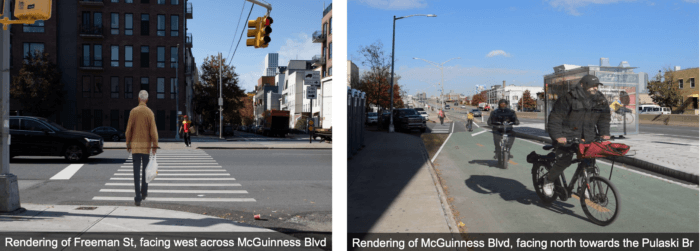
At Bayard Street — where Jensen was killed in 2021 — new protected pedestrian and bike space will allow people to cross safely toward the BQE underpass and Meeker Avenue. The additions are also expected to slow fast-moving vehicles turning onto the BQE.
Vehicle traffic on McGuinness Boulevard will probably get worse during the transition period, Wyche said – many drivers use the thoroughfare as a cut-through to get through Greenpoint, rather than taking the slow-moving highways in the nabe. Up to 30% of vehicle traffic on McGuinness is cut-through traffic, according to the DOT.
In time, cut-through drivers are expected to reroute themselves to the BQE or the Long Island Expressway, Wyche said, so traffic should ease on McGuinness Boulevard.
DOT will continue to monitor the situation, especially at already-problematic intersections like Apollo Street and Kingsland Avenue.
“We know that we will have to not just monitor but, in the future, probably, make different changes,” Wyche explained. “We could make changes to signal phasing, to the way signals line up, the coordination … we expect to stay in the neighborhood, we will keep tweaking it so it makes sense for everyone using it.”
DOT’s project isn’t the end of upgrades to McGuinness Boulevard — in 2021, then-mayor Bill de Blasio pledged $39 million for a full capital redesign of the street. The pricey project will require buy-in from multiple city agencies, and has not been started yet.
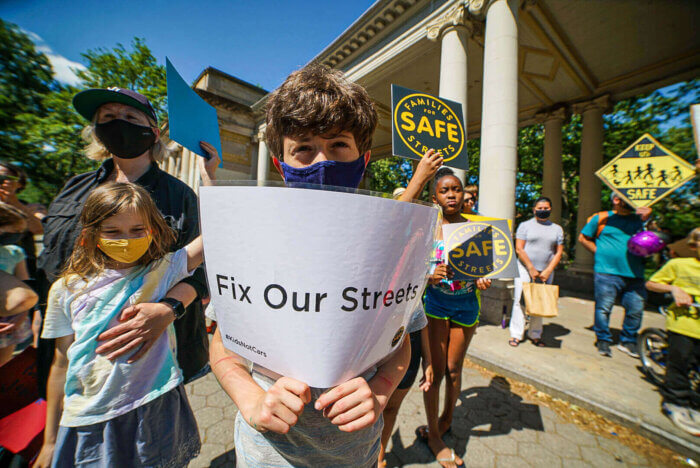
“This is really the precursor to the capital project,” Wyche said. “That sort of project takes many years, a lot more years than I think people want for a safer McGuinness. This work will inform the capital project.”
Some locals have criticized the proposed redesign at community meetings over the last two years — but DOT chose its final proposal because of widespread support over other options, Wyche said.
“Everyone who is enthusiastic about this, who is concerned about this, I just want to tell you I really appreciate your active engagement, and your feedback is valuable, and I’m really looking forward to hearing it,” said Council Member Lincoln Restler. “I really believe that for the kids going into P.S. 34 every day, for the seniors, for the families that are crossing McGuinness every day, this is a plan that sews our neighborhood back together.”











